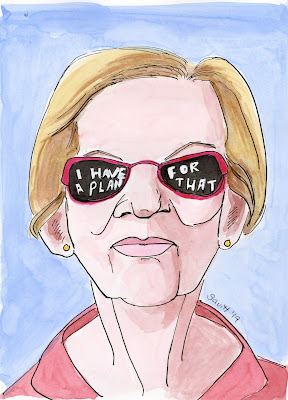Should it be Driving the Debate on Health Care?
 |
| Bankruptcy caused by medical issues is a hot topic |
Medical bankruptcy is highlighted as a reason to either expand the Affordable Care Act, add a public option to the ACA, or adopt Medicare for All.
The impact and size of medical bankruptcy, though, is up for debate. From a May 30,2019 article titled "Medical Bankruptcy and the Economy" in The Balance, author Kimberly Amadeo writes "Medical bills were the biggest cause of U.S. bankruptcies, according to a CNBC report. It is estimated that two million people were adversely affected."
A February 11, 2019 CNBC article titled "This is the Real Reason most Americans file for Medical Bankruptcy", author Lorie Konish writes "Two thirds of people who file for bankruptcy cite medical issues as a key contributor to their financial downfall.... An estimated 530,000 families turn to bankruptcy each year because of medical issues and bills, the research found."
Confusing the issue is research, most notably from a study conducted by the New England Journal of Medicine, which found that medical issues cause far less bankruptcy than is commonly believed.
From a March 28, 2018 Washington Post article titled "The Truth about Medical Bankruptcies", author Megan McArdle cites the aforementioned study. "Carlos Dobkin, Amy Finkelstein, Raymond Klender and Matthew J. Notowidigo did what's called an i event study. Instead of looking at bankruptcies to see how many involved medical bills, they started with the illness, and asked how much more likely people were to declare bankruptcy after they got sick .... The fraction of bankruptcies caused by medical events is just 4%."
One factor that complicates the issue is that people don't have to share the reason for their bankruptcy when they declare it. So estimates are made based on interviews.
Everyone seems to agree that issues such as low wages, little or no savings, and unsteady jobs, coupled with an unexpected medical expense, cause people to declare bankruptcy.
Having medical insurance is no shield against bankruptcy. From a February 9, 2019 article in MedAlertHelp.org titled "The Truths and Myths Behind Medical Bankruptcies", Dr. Lina Velikova, MD writes "And having health insurance is no protection against bankruptcy. Unanticipated issues, such as hospitals/providers not being in network, deductibles, copays and denied claims, all contribute to the financial burdens of medical care."
One final issue muddies the discussion, and casts a shadow over the future of health care in America. The cost of providing health insurance for their employees is creating a big financial burden on employers. In a September 26, 2019 article in the New York Times titled "Employers Battered by the Soaring Costs of Health Insurance", author Reed Abelson writes "Employers remain the main source of health insurance in the United States, covering about 153 million people. But premiums and deductibles are pushing employer-based coverage increasingly out of reach, according to a new analysis released Wednesday by the Kaiser Family Foundation.... The average premium paid by the employer and the employee for a family plan now tops $20,000 a year, with the worker contributing about $6,000, according to the survey."
As health care premiums continue to rise, it is clear that the health care system in the U.S. may be reaching a breaking point. What isn't clear is how much bankruptcy is caused by medical issues.








